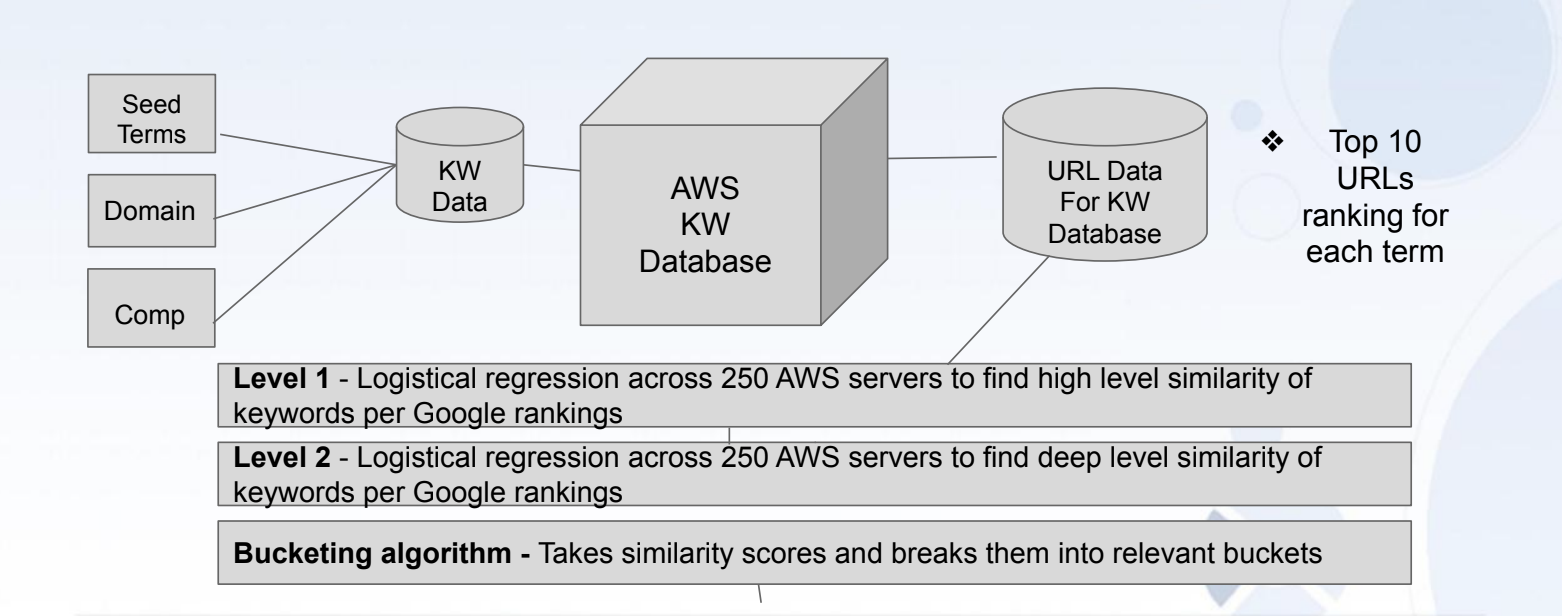It’s common for marketers to target individual keywords when creating and optimizing content. Still, topic clusters are an even more powerful way to do keyword research.
With topic clustering, you can get results from the individual terms you target plus build a robust collection of relevant, associated keywords to drive more traffic to your website.
On January 25, I moderated a webinar with Dave Snyder, CEO and Founder at CopyPress, and Sabrina Hipps, VP of Partner Development. They demonstrated how to build a better keyword universe for your marketing efforts.
Here’s a summary of the webinar. To access the entire presentation, complete the form.
The Problem With Search-Focused Content
Search-focused content production is still primarily focused on “traditional keyword research,” or “linear keyword research,” which includes:
- Bad data.
- Limited scope.
- A focus on a single keyword rather than intent.
- Waste and redundancies in your content strategy.
- Inaccurate ROI modeling and forecasting.
- A significant amount of labor to scale correctly.
- Increased possibility of poor data accuracy from third-party tools.
As you can see, traditional or linear keyword research typically focuses on singular keywords. It doesn’t focus on things holistically, and it doesn’t focus on user intent.
How Topic Clustering Solves Search-Focused Issues
Taking a clustered approach towards related words could lead to something worth the expense of adding to your content.
Topic clustering:
- Minimizes waste and gives clear ideas for grouping keywords into content pieces.
- Gives a better forecast modeling that considers all the potential traffic each piece of content can generate.
- Decreases the cost of keyword research significantly from a labor perspective.
- Dilutes the possible effects of poor third-party volume accuracy.
[Find out how clustering differs from linear keyword research] Instantly access the webinar →
2 Ways To Discover & Use Keyword Clusters
There are advanced machine learning programs out there that can speed up your workflow, as well as manual methods you can try.
Low-Tech, Manual Approach To Topic Clustering
This approach will be somewhat labor intensive, but if you’re doing 10 or 20 blog posts a month, it’s an effortless way to cluster your concepts and get better forecasting.
[Get the steps] Instantly access the webinar →
Automated, High-Tech Approach To Topic Clustering
Avoid the scaling issues of SEO and topic clustering by using machine learning.
The model we use in our on-demand webinar uses a learning model similar to what Netflix uses to help people find new movies and shows comparable to what they’ve previously watched.
- Keyword data is collected based on the user’s seed terms and competitors. Then, the top SERP results for every keyword are gathered.
- Top SERP results are run through models to determine how similar Google believes these data sets/terms are.
- A secondary machine learning process is then used to bucket-related terms based on a scale that the user controls.
 Copypress, January 2023
Copypress, January 2023[See how it works] Instantly access the webinar →
The high-tech approach to topic clustering saves time and frees up internal resources, especially in the long term.
[Slides] How To Supercharge Your Keyword Research With Powerful Topic Clustering
Here’s the presentation:
Join Us For Our Next Webinar!
Beyond ROAS: Aligning Google Ads With Your True Business Objectives
Join Justin Covington, Director of Paid Channels Solutions at iQuanti, as he breaks down the Google Ads changes and show you how to use value-based bidding to drive measurable results.
Image Credits:
Featured Image: Paulo Bobita/Search Engine Journal


